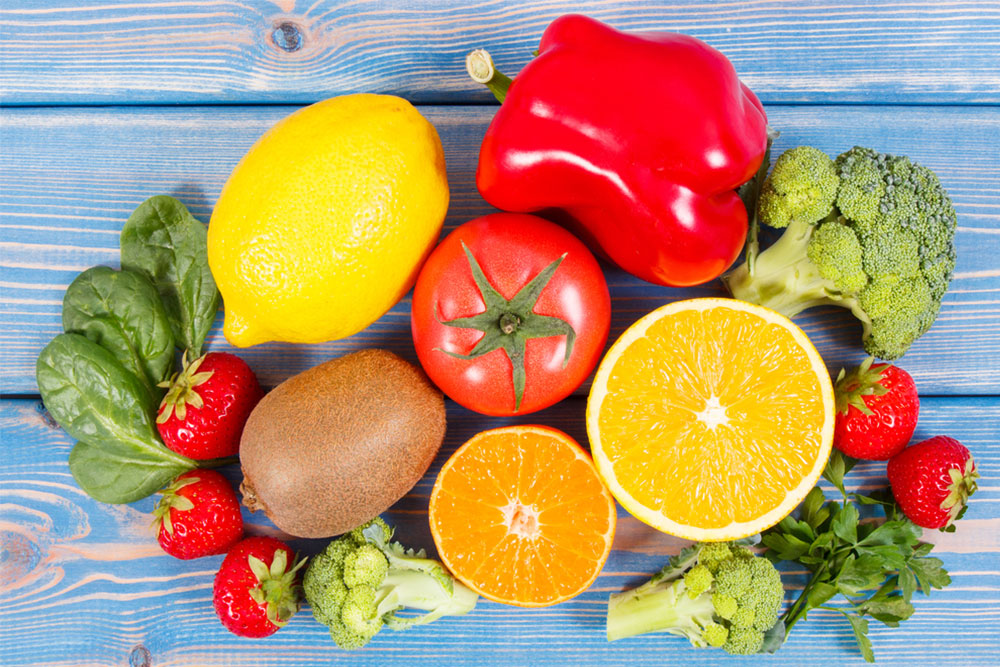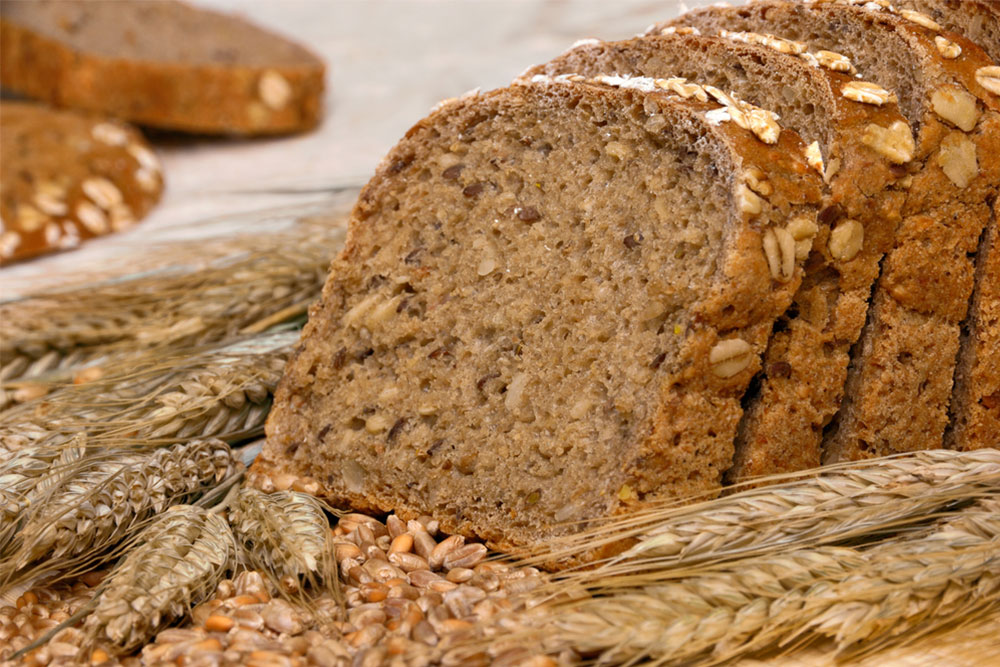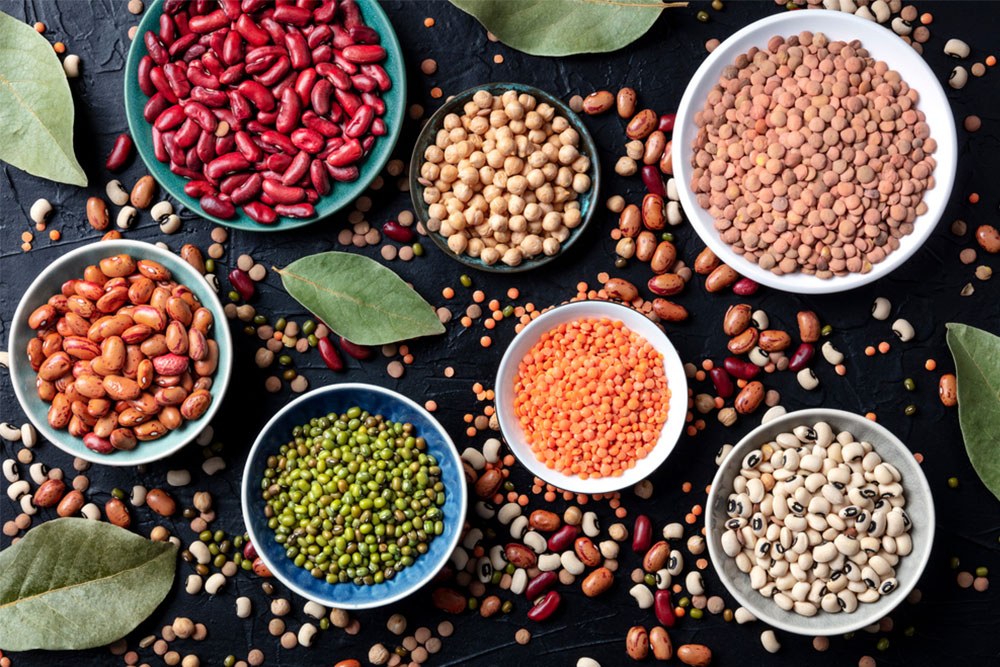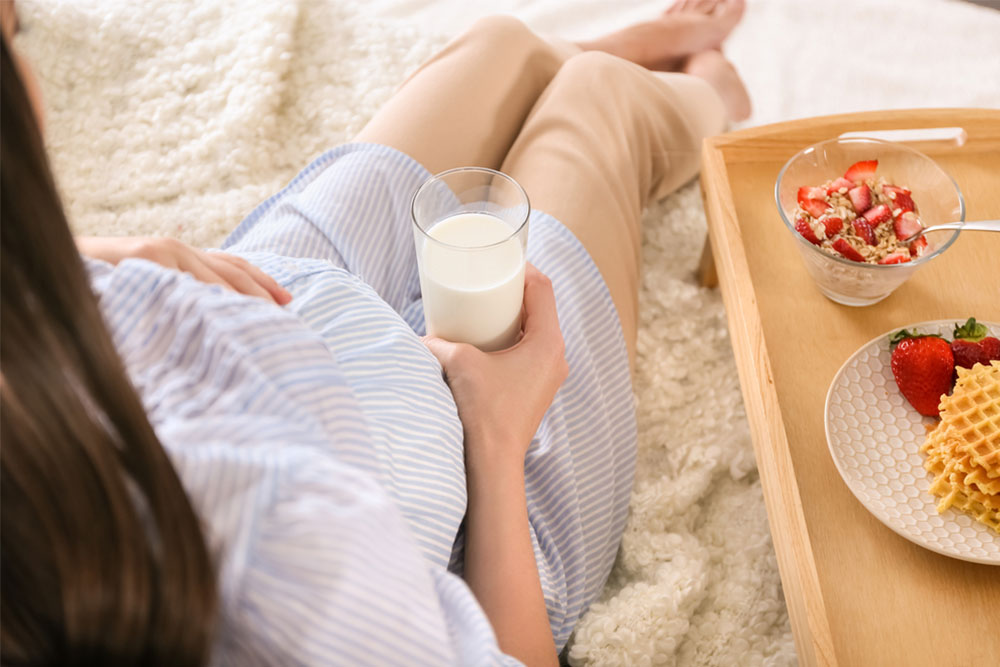Pregnancy is considered one of the most joyous times in a woman’s life. It’s thrilling to know that your body is nurturing new life, and this naturally means that you make significant alterations, keeping your baby in mind. Of course, pregnancy is also the time to kick back, relax, and pamper yourself.
Now, a big part of pampering yourself when you’re expecting is ensuring that you and your baby are eating right, and getting adequate nourishment. That means, closely monitoring your diet. A great way to ensure you’re getting that required nutrition is by eating from a variety of food groups throughout the day so you get the best of everything. Remember, your body needs an additional 300 calories when you’re pregnant. With this in mind, we bring you a check list of nutritious foods you should consume on a daily basis:
1. Fruits and Vegetables

Packed with a variety of essential nutrients, especially vitamin C and folic acid, fruits and vegetables become an important part of your daily pregnancy diet. Fruits like oranges, grapefruits and honeydew, and vegetables such as broccoli, tomatoes and Brussel sprouts are a rich source of vitamin C and should be consumed regularly. Dark leafy green vegetables, and legumes such as black or lima beans, and black eyed peas are a rich source of folic acid so make sure they feature regularly in your meals.
2. Breads and Grains

This food group forms the bulk of essential carbohydrates, which are the main source of energy for pregnant women. Whole grains and enriched products provide important nutrients such as iron, vitamin B, fibre, as well as some amount of protein. However, one must note that consuming excess amount of carbohydrates may cause unnecessary weight gain, which can further lead to gestational diabetes. For a healthier alternative, switch up your white bread with whole grain or multi-grain bread, white rice with brown rice, regular chapatis with bajra rotis.
3. Legumes and Pulses

When your baby is developing, it needs plenty of protein, especially in the second and third trimesters, and so do you. While it is well-known that non-vegetarian diets contain enough protein, there are options and alternatives available for those who follow a vegan or vegetarian diet. Legumes and pulses are also rich in iron, a nutrient that carries oxygen to the baby, as well as to your muscles to help you avoid symptoms such as fatigue, weakness, and irritability, while also keeping your hormones from going into overdrive, a common symptom of pregnancy. For those on a vegan diet, they may consider having soybean options like tofu. However, experts suggest limiting its serving to one or two per day.
4. Dairy Products

Calcium is essential for building strong teeth and bones, normal blood clotting, and muscle and nerve functions. By the third trimester, your developing baby requires a considerable amount of calcium, which the body will take from your bones. So it is necessary to regularly consume calcium during your pregnancy. Sources of calcium include pasteurised milk and cheese, yogurt, creamy soups (like cream of mushroom), and puddings (however, we recommend a natural sweetener like honey or jaggery in place of refined sugar, to keep your sugar levels in check.) Some calcium is also found in green vegetables, beans and dried peas. However, doctors advise against consuming cream cheese for pregnant women as it can cause uneasiness and gas.

Now that you know the major food groups that should be a part of your pregnancy diet, let us understand how changing our diets as per our trimesters can help.
The whole duration of pregnancy is divided into three trimesters. They are done so that it is easier for the mother to understand the growth of her baby. Each trimester focuses on different aspects of the baby’s growth.
The food rules for a healthy pregnancy are straightforward. When, where, and how much people eat is a matter of choice, and is frequently dictated by necessity. If a pregnant woman suffers from morning sickness in the first trimester, she might pick a snack for breakfast and a substantial evening meal, but in the last trimester, when heartburn is more of an issue, she might choose a larger breakfast and a light evening meal. Caffeine (found in coffee, tea, and colas) should be avoided or limited, as should alcohol and tobacco. Abstinence is the greatest option for a woman because no safe limit for drinking has been identified.
Pregnancy Diet: First Trimester (4 -13 weeks)
Folic acid, iron, and vitamin B6 are the most critical nutrients to have throughout the first trimester.
Folic acid protects your kid from birth defects including cleft palate and neural tube defects like spina bifida.
Iron is required for the production of healthy red blood cells, which transport oxygen throughout the body. You may feel fatigued and out of breath if you don't get enough iron. In India, iron deficiency anaemia (low haemoglobin) is frequent, hence this mineral is essential during pregnancy.
You may feel nauseous and unable to eat much in the morning due to morning sickness. Vitamin B6 may aid to alleviate nausea, according to some data.
Pregnancy Diet: Second Trimester (14 - 27 weeks)
Your baby's bones and brain are both growing in the second trimester. Calcium and vitamin D are important for strong bones, while omega 3 is critical for your baby's brain development.
Betacarotene, a type of vitamin A that helps humans have healthy blood and skin, is another mineral we've included in our meal planning during the second trimester.
Since anaemia (low haemoglobin) is so common in India, especially among vegetarians, we've continued to emphasise iron-rich meals.
Pregnancy Diet: Third Trimester (28 - 40 weeks)
Your baby's growth will accelerate in the third trimester as they accumulate weight and prepare for life outside the womb. As a result, you'll notice that you're swiftly gaining weight. If you eat a well-balanced and healthy diet, you shouldn't have to worry too much about the extra pounds. As your baby's fat layers thicken, your energy requirements will rise.
Vitamin K is required for blood clotting, which is critical during childbirth. As a result, it is recommended that you eat plenty of vitamin K-rich foods during your third trimester to ensure that your body is not deficient in this essential ingredient at delivery.
In Conclusion
The best approach to receive all the nutrients you and your baby require is to eat a varied and balanced diet. It's also often easier for your body to absorb essential nutrients through food rather than supplements. Even the healthiest diets, however, require supplementation during pregnancy. As a result, do not stop taking the supplements that your doctor has prescribed.
However, we must add that no two bodies are the same, and the journey of motherhood is different for different women. It is always recommended to have a word with your doctor to understand the dietary requirements for both you and the baby, and incorporate the same in your diet.
FAQs
Q. What foods are a must-have during pregnancy?
A. Fruits, vegetables, legumes, dairy are some of the must-have food items that should be included in your pregnancy diet. Each of these food groups is beneficial to you and your growing baby through the different stages.
Q. What foods should be avoided during pregnancy?
A. It's best to avoid alcohol as there are no studies to prove its effects on the unborn child. Caffeine also must be avoided, but you can start by limiting its consumption. Unpasteurised dairy products, unwashed produce, and raw papayas should be avoided at all cost.
Also Read: The Pregnancy Diet: Foods To Avoid